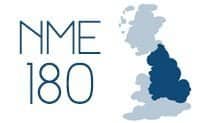NHS Shared Business Services has received 69 expressions of interest from NHS trusts in regard to its framework to support the procurement of clinical information systems.
The framework, which was launched in February and could be worth up to £1.25 billion, is intended to help NHS trusts save money and time when buying new clinical systems.
One of the main purposes of the framework is to support trusts in the North, Midlands and East of England that need to move off contracts for systems agreed as part of the National Programme for IT.
Although the programme largely failed to deliver ‘strategic’ software in the NME, it delivered a lot of ‘interim’ systems to acute trusts, and IT systems to community, mental health and primary care organisations. The bulk of these contracts are due to expire in July 2016.
Speaking to Digital Health News, Tom Slater, provider procurement manager for NHS SBS, acknowledged that there was a sense of “urgency” from trusts looking to move off national contracts.
He said 69 had been in touch with NHS SBS since the launch of the framework, although he didn’t give specific numbers for the NME.
Servelec, one of the suppliers on the framework, told Digital Health News there are 667 systems that need to be procured by 180 organisations in the NME as part of the national contract exit, including new systems for acute care, community care, mental health and child health.
Slater said trusts needed to “invest significantly” to make sure they were ready and able to move to local contracts.
However, he said he was “positive” that they were aware of the situation and that some trusts were starting to bring in consultants, specialist IT and clinical staff to support the transition.
He added that the Health and Social Care Information Centre had been doing good work to make sure organisations were aware of the looming deadlines and that there were “no surprises that the exit is coming.”
Servelec’s chief executive, Alan Stubbs, said the NHS SBS framework was “very important” because it provided a “rigid framework” for procurement that allowed suppliers to have a competitive dialogues with trusts.
However, he also said there was “no chance” of a complete refresh of contracts being complete by July 2016.
“An acute implementation will take 18 months to two years, so [trusts that wanted to change system] should have been placing contracts last year. So even though the contracts will end in theory in July 2016, I think there will be a series of extensions to those contracts.”
Stubbs added that the extra time would benefit the market, because if all trusts went out to procure at the same time there would not be capacity in the UK supplier community to handle the workload.
He said his own company plans to target 22 larger community sites that are currently served by TPP’s SystmOne as potential users of its RiO community electronic patient record, while letting “Emis and TPP fight it out” over smaller community sites.
Servelec is also targeting acute sites currently using CSC’s iSoft products, and encouraging them to use its Oceano EPR.
Jim Chase, managing director of Advanced Computer Software, another supplier on the framework, also raised concerns about the likelihood of new contracts being put in place in time.
He told Digital Health News: “It’s almost surprising that there aren’t more conversations going on. One almost has to assume that quite a lot of trusts maybe haven’t got their heads around how tight the timescales really are.
Martin Bell, director of community, children's and mental health at Emis, another supplier on the framework, told Digital Health News that he was aware that one third of NHS trusts in the NME region have extensions on national contracts until up to 2020.
He also mentioned that not all trusts in the NME were using the NHS SBS framework, with some using direct contracting and other frameworks.
This includes the framework for procurement created by a consortium of 38 trusts in London and the South that supported a relatively clean replacement of national contracts in the area.

